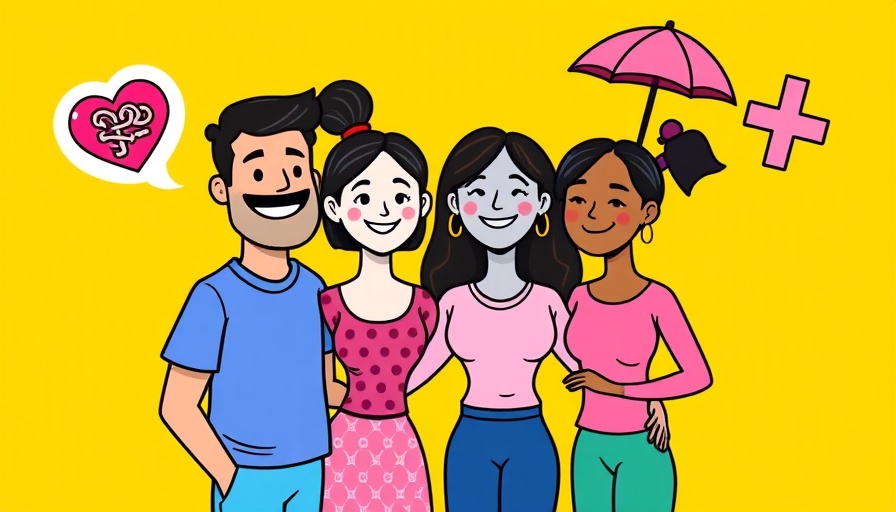
The Unseen Heroes: Importance of Peer Specialists in Mental Health
In a landscape marked by rising mental health challenges, peer specialists emerge as invaluable assets in the therapeutic realm. They provide support from a place of shared experience, offering a unique understanding of the complexities faced by individuals dealing with mental health disorders. Although their contribution remains underappreciated, recognizing peer specialists is crucial, especially as they play an essential role in reducing stigma and promoting recovery within communities.
The Role of Peer Support in Managing Mental Health
Peer specialists not only bring lived experiences but also practical, empathetic coping strategies to individuals battling mental health issues, such as anxiety disorders and depression. Their ability to connect with clients ensures that anxieties regarding healthcare access and mental health stigma are alleviated, fostering an open dialogue about personal struggles. This personal connection can enhance traditional treatment methods like cognitive behavioral therapy and counseling, leading to a more holistic approach to mental health.
Current Challenges Facing Peer Specialists
Despite their potential, peer specialists encounter various obstacles in the mental health sector, primarily concerning professional recognition and integration into treatment teams. Mental health policy often overlooks these vital roles, leading to gaps in funding and appropriate training. As a consequence, many individuals may not receive the support they desperately need. Advocating for the acknowledgment of peer specialists as legitimate providers can shift these paradigms, ensuring that mental health services embrace a more inclusive model.
Impact of Stigma and the Need for Change
Stigma remains one of the most significant barriers in mental health awareness and access to care. Peer specialists can act as facilitators for reducing this stigma, offering narratives that challenge misconceptions surrounding mental health disorders. By fostering environments in schools, workplaces, and communities that prioritize openness about mental health, we can begin to dismantle harmful stereotypes and encourage those suffering to seek help without fear of retribution.
Future Directions: Embracing Peer Support in Mental Health
The future of mental health care is inherently tied to the integration of peer specialists. As the healthcare community evolves, it must acknowledge the importance of a collaborative, multifaceted approach to treatment. This includes promoting strategies such as self-care, mindfulness, and anxiety management techniques that peer specialists are adept at teaching. The acceptance and support of peer specialists could significantly enhance mental health outcomes for various demographics, including youths, families, and individuals navigating the complexities of mental health disorders in a post-pandemic world.
Actionable Insights: Supporting Peer Specialists
To support peer specialists in their essential roles, policymakers, mental health organizations, and community leaders need to advocate for and implement recognition strategies. This includes ensuring proper funding, offering training programs that validate their skills, and integrating them into established mental health frameworks. Individuals can also contribute by raising awareness and promoting mental health education within their circles, creating supportive environments for those in need.
In conclusion, the recognition of peer specialists in mental health care is more than just an acknowledgment; it represents a shifting paradigm that can revolutionize the approach we take toward mental health services. By valuing their contributions and advocating for systemic changes, we pave the way for a more inclusive, empathetic, and effective mental health landscape. Together, we must champion these vital voices to ensure that all individuals, particularly those affected by anxiety disorders and other mental health challenges, receive the support they need and deserve.
 Add Row
Add Row  Add
Add 




Write A Comment